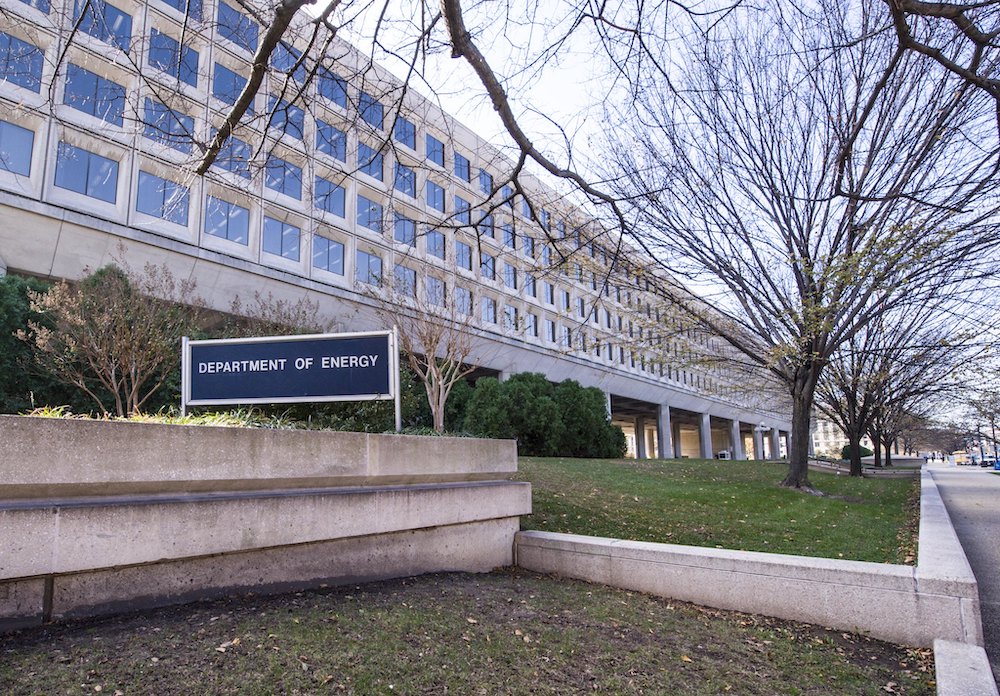
- Details
- By Chez Oxendine
- Energy | Environment
The Department of Energy on Friday announced a new funding opportunity to help tribes with renewable energy pre-development costs, a long-standing barrier to getting many such projects off the ground in Indian Country.
The Tribal Clean Energy Planning and Development program will leverage $25 million to support planning, assessment, and development on tribal lands, according to Office of Indian Energy Director Wahleah Johns (Diné). The program plans to make between 20 to 40 awards, ranging from $100,000 to $2.5 million, to help with everything from feasibility studies to environmental reviews.
DOE has begun accepting applications, which are open through Jan. 23, 2025. Award announcements are expected sometime in summer 2025.
“We’ve heard from many tribes that they need help with early-stage development, such as technical analysis about a specific technology that could help serve their nation and their vision for energy,” Johns said during a press briefing Friday afternoon. “We hope this will build the foundation for what is needed, and we anticipate this will spark more amazing applications for our deployment technology funding opportunities.”
The announcement by the DOE comes on the heels of another pre-development funding effort launched earlier this week: the Indigenous Power & Light Fund for Energy Sovereignty. That collaboration between the Alliance for Tribal Clean Energy and several leading philanthropic organizations — including the John D. and Catherine T. MacArthur Foundation, the William and Flora Hewlett Foundation, and the Lemelson Foundation — aims to establish a $100 million revolving fund to support similar pre-development costs, such as interconnectivity studies and fees.
Alliance CEO Chéri Smith said the organization was “incredibly pleased” to see more funding coming for pre-development costs, which can serve as a high barrier for burgeoning tribal energy projects. Such costs can climb into the millions as tribes juggle assessments, studies, and design work. Those expenses can, in turn, stop tribes from claiming otherwise accessible federal funding, which may require matching money or completed planning work.
More funding for pre-development support, Smith said, can help tribes “unlock” resources for renewable energy allocated in recent legislation, like the Bipartisan Infrastructure Law and the Inflation Reduction Act. She pointed to $2 billion in clean energy funding headed to Indian Country through the EPA’s Greenhouse Gas Reduction Fund as an example.
“This shows that tribal voices are being heard and that the agency is taking meaningful action,” Smith said. “The more resources brought together to ensure tribes are well-positioned to seize this historic moment and develop gigawatts of regenerative clean energy on tribal lands, the more significant the positive impact will be.”
In addition to the new funding opportunity, the DOE also announced a slate of six grant awards on Friday under the Clean Energy Technology Deployment on Tribal Lands Program. The projects should save a collective $54 million over the course of their lifetimes, Johns said. The six awarded projects include:
- Agua Caliente Band of Cahuilla Indians in Palm Springs, Calif. will build a solar panel and battery storage system. The project will cost $5.4 million total, with $4.3 million covered by the DOE award.
- Alaska Village Electric Cooperative in Anchorage will build a 200 kilowatt wind turbine and battery storage system in Alaska. The total project cost is $2.4 million, with $2 million covered by the DOE award.
- Barona Band of Mission Indians in Lakeside, Calif. will spend $12.6 million, $5 million of which is covered by the DOE award, to install solar panels for four tribal buildings.
- Shakopee Mdewakanton Sioux Community in Scott County, Minn. will install solar panels on the rooftops of tribal buildings, spending $1.75 million to do so. The DOE award will cover $1.2 million.
- United Tribes Technical College in Bismarck, North Dakota will use $2.4 million ($2.2 million covered by the DOE award) to install a solar panel and battery storage system on the college’s wellness center.
- Wichita and Affiliated Tribes in Anadarko, Oklahoma will install solar panels on the Sugar Creek Casino and Sugar Creek Inn and Suites. This project is estimated to cost $4.7 million, $2.2 million of which will be covered by the DOE award.
During the press briefing, tribal representatives described the projects as an avenue to improve each tribe’s energy resilience and independence.
“We maintain a strong connection to our ancestral lands while evolving to meet modern challenges,” Agua Caliente Tribal Chairman Reid Milanovic said. “This solar and battery storage project represents a significant leap forward in our long standing clean energy goals - it enhances our resilience and self sufficiency, which are crucial aspects of our tribal sovereignty.”
